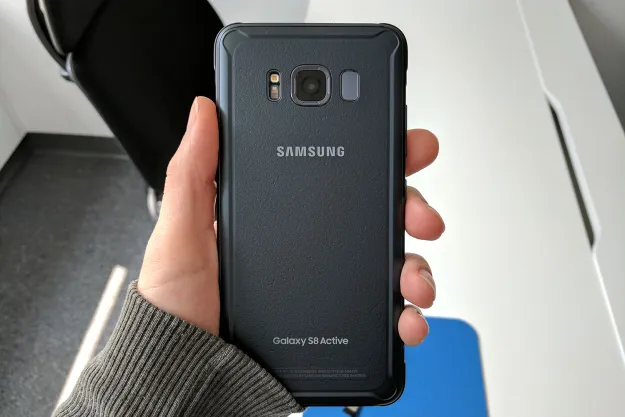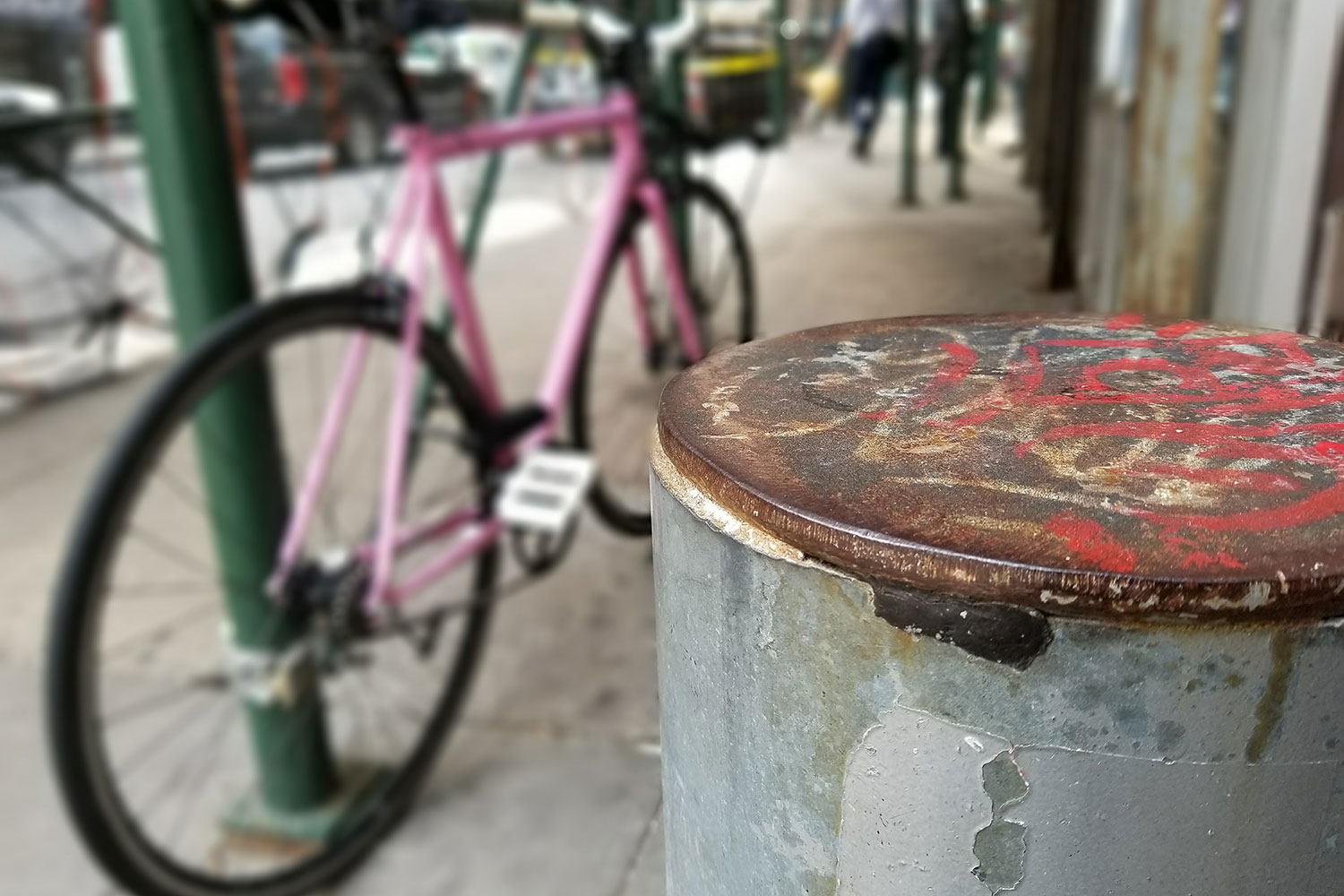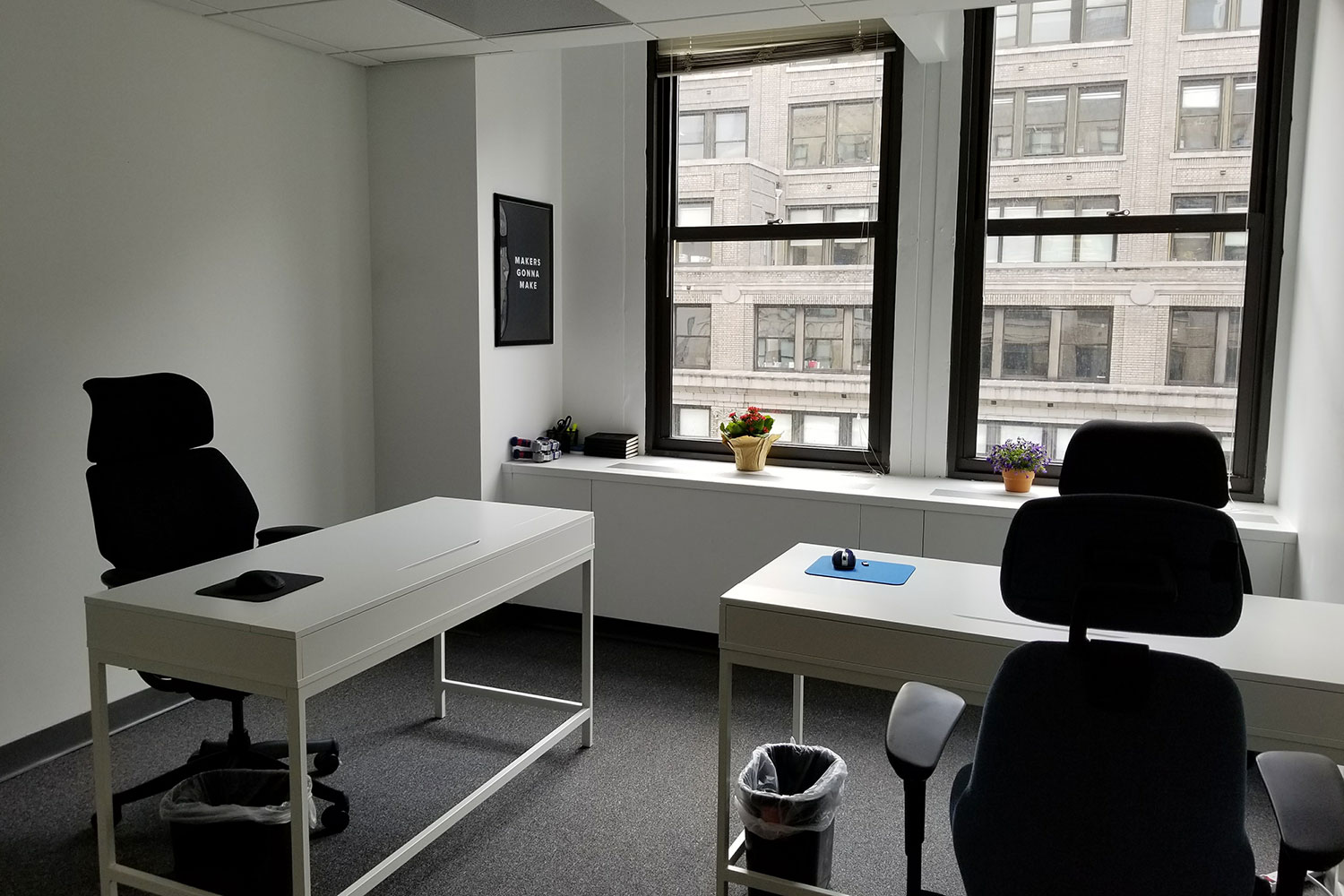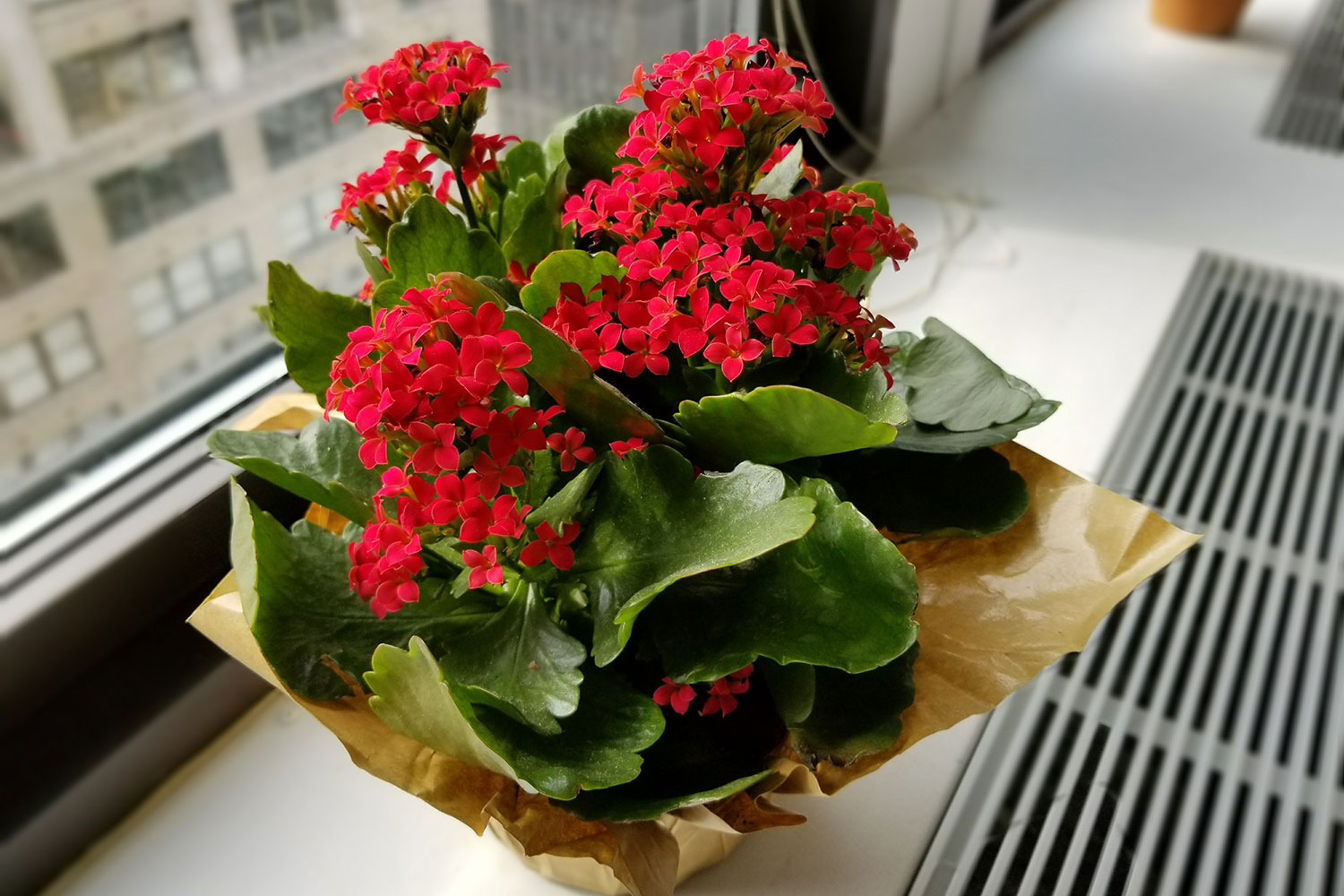
- Durable design
- Long-lasting battery
- Speedy processor
- Great camera
- Weak speaker
- Chunky looks
It wasn’t all that long ago we heaped praise on the Galaxy S8, Samsung’s phoenix in the Note 7’s ashes. Its gorgeous design, impressive screen, and powerful processor set a high bar that few phones have been able to match.
Samsung’s next worthy challenger has an entirely different aim. The S8 Active is a ruggedized and reinforced smartphone built to withstand the elements — and exclusive to the AT&T network.
So how does the S8 Active measure up to the plain old Galaxy S8? In our Samsung Galaxy Active review, we found that it delivers on its promises, but at the cost of durability — and design.
Design
The Galaxy S8 Active doesn’t look like your average S series smartphone. It’s more like a bulked-up second cousin who spent the summer deadlifting. Like any bodybuilder worth his salt, the Active’s ruggedized exterior can take a beating.
The S8 Active trades the S8’s fragile glass-and-metal body for reinforced plastic. A thick casing extends the length of its edges, and shock-absorbent bumpers jut out from all four corners. The S8 Active trades its predecessor’s physical home button for a virtual one, and squeezes an iris scanner, front camera, earpiece, and notification LED into a narrow top bezel above the screen.
The phone’s sides and back are consistent with the ruggedized aesthetic. The power button is on the right side, opposite the volume rocker and Bixby button on the left, and exposed screws on the top and bottom hold the single bottom-firing speaker, SIM tray, headphone jack, and USB-C port in place. On the S8 Active’s back, cushiony foam makes ample room for the camera, flash, and fingerprint sensor.
The industrial look and feel won’t appeal to everybody, but we liked the heft and grippiness of the S8 Active’s soft-touch body. Weight-wise, the S8 Active (208 grams) didn’t feel that much heavier than the S8 (155 grams) and S8 Plus (173 grams), and despite the S8 Active’s thickness — a necessity on account of its large battery — it wasn’t noticeably less comfortable in the hand than the Galaxy S8.
We actually came to prefer the S8 Active’s flat screen to the Galaxy S8’s curves.
The S8 Active’s 5.8-inch touchscreen shares the same characteristic blacks, wide viewing angles, and vibrant colors as the Galaxy S8. It carries the same HDR Premium certification too, which means greater color volume for high-dynamic range (HDR) content. But the S8 Active’s screen is flat instead of curved, and it’s a little less crisp at a resolution of 2,560 x 1,440 pixels and pixel density of 506 compared to the S8’s 2,960 x 1,440 pixels and ppi of 570.
That said, we had a tough time seeing the difference, and we actually came to prefer the S8 Active’s flat screen to the Galaxy S8’s curves. It made the S8 Active a lot easier to grasp than the all-glass Galaxy S8, which has a tendency of coming to life unexpectedly if you grip too strongly.
Specs
The Galaxy S8 Active may not share much in common with the S8 Active on the outside, but the inside is a different story.
It features chipmaker Qualcomm’s Snapdragon 835 processor, which delivers 27 percent better performance than phones with the Snapdragon 821, such as the Google Pixel. It’s paired with 4GB of RAM, 64GB of internal storage, and a MicroSD card slot for additional memory.
Sound familiar? That’s because it’s the same hardware as the Galaxy S8, down to the processor and MicroSD slot. Unsurprisingly, the S8 Active is just as speedy.
This phone absolutely flies through most tasks, juggling multiple apps and browser tabs like a pro. It crunched through our punishing mix of productivity (Slack, Trello, Gmail, and Dropbox) and social media (Instagram, Facebook, and Twitter) with no discernible effort, never once stuttering, hiccupping, or crashing unexpectedly. Even compared to Google’s Pixel, the de facto benchmark for smoothness among Android phones, the S8 Active held up remarkably well under stress.
Still, some apps managed to punch holes in the otherwise seamless experience. Samsung’s Bixby Home, a dashboard of news and social updates, lagged when launched from the Bixby button. Bixby Voice, Samsung’s Siri-like intelligent voice assistant, also occasionally took longer to recognize commands than might be expected.
But overall, the S8 Active handled day-to-day tasks without complaint, and performed just as strongly in the three benchmarking apps we tested:
- 3DMark SlingShot Extreme: 2374
- AnTuTu 3D Garden: 26.39fps
- Geekbench 4: 1808 single core, 6174 multi-core
For reference, with Geekbench 4 the Galaxy S8 earned 1,762 in single core and 5,723 in multi-core, and the iPhone 7 Plus achieved 3,367 in single core and 5,491 in multi-core.
This phone absolutely flies through most tasks, juggling multiple apps and browser tabs like a pro.
All the more impressive was the fact that the S8 Active got those scores after we dunked it in a bowl of water for eight minutes.
The S8 Active features the same iris-scanning, fingerprint-scanning, and facial recognition tech as the S8, and they work no less consistently. We’re especially big fans of facial recognition, which unlocks the S8 Active almost instantly. The iris scanner takes a bit longer, as does the fingerprint sensor, which is in the same awkward position as it is on the S8. It’s still impossible to reach the fingerprint sensor without smudging the adjacent rear camera’s lens, and that’s frustrating.
Near Field Communication (NFC) and Samsung’s proprietary Magnetic Secure Transmission (MST) are on-board, which lets you pay for in-store items with Android Pay, Samsung Pay, and other contactless platforms. Support for Bluetooth 5, the newest standard, means double the speed and up to four times the range for compatible speakers, wireless headphones, and smart home devices. You can even connect two Bluetooth devices at the same time.
Durability
The S8 Active’s ruggedized exterior isn’t just for show. The S8 Active is IP68 certified to withstand water up to three feet for thirty minutes, just like the Galaxy S8. But it’s also MIL-STD-810G certified, which means it’s been tested to withstand salt, dust, high humidity, rain, and other elements.
It certainly withstood our pockets. We stowed the S8 Active rather carelessly for a week, often jamming it into the same pockets as keychains and pens. Other than a surface scratch near the screen’s left-hand side, it escaped unscathed.
After that, we put the Samsung’s more extreme claims to the test.
First up was water resistance. We filled a transparent bowl with four inches of water, set it in front of a sunny office window, and dropped the switched-on S8 Active in from above. We left it at the bottom of the bowl for about eight minutes, removed it, washed it off with a fistful of paper towels, and tried launching a benchmarking app. Remarkably, it was as if nothing had happened; the (sparkling) S8 Active warned us to wait until the USB-C port had dried before plugging it into to charge, but completed the benchmark without complaint. In subsequent tests, every component we tested — including the speaker, earpiece, and cameras — worked just as well as they had before we thoroughly soaked them.
If you pick up an S8 Active, expect it to survive an accidental dip in a pool or drop onto carpet just fine.
Dropping the S8 Active didn’t seem to do any permanent damage, either. We conducted a series of drop tests in the office, on carpet, with the S8 Active held face up at shoulder level. After three successive drops, we examined the phone closely for damage. But try as we might, we didn’t find scratches, scuffs, or any other obvious signs of major harm. The S8 Active’s vibration motor seemed to rattle a bit more than usual when new notifications arrived, but the drops didn’t seem to affect the phone’s speaker, camera, or performance.
Here’s our conclusion: If you pick up an S8 Active, expect it to survive an accidental dip in a pool or drop onto carpet just fine. The jury’s out on how well it’ll stand up to higher falls and deeper dives, and we’ll update this review if we observe something out of the ordinary. But for now, we can personally attest to the S8 Active’s better-than-average durability.
Camera
The S8 Active’s camera is identical to the one in the Galaxy S7 and Galaxy S8. It’s a single 12-megapixel sensor with an f/1.7 aperture, unlike the dual-camera model on the Note 8. But it doesn’t suffer for it.
In the early daylight hours of the weekday commute, it captured bright, sharp photos with lots of detail. Colors tended to be a little more muted than the Google Pixel. And every once in a while, Samsung’s autofocus didn’t lock onto to the right subject, resulting in blurry shots.
But we were impressed by the S8 Active’s shooting modes. Selective Focus captures DSRL-like bokeh shots by blurring the background and locking focus on the foreground, like Apple’s Portrait Mode. The Pro mode lets you change settings like the shutter speed, focus, and ISO.
The S8 Active’s front camera is no less versatile. A “Wide Selfie” mode has you snap a photo, twist your wrist to the right and left, and tap the shutter button to create a sort of selfie panorama. Samsung’s augmented reality (AR) sticker feature makes the experience even better with Snapchat-like stickers, masks, and filters.
Battery life and charging
The S8 Active isn’t just bulkier for the sake of it. One reason for its thicker, chunkier body is a larger battery, and it’s a massive improvement.
The Active packs a 4,000mAh battery compared to the Galaxy S8’s 3,000mAh battery, and it doesn’t take long to notice the difference. In our testing, a full day of checking emails, responding to Slack messages, updating RSS feeds, and snapping photos drained the battery to about 50 percent by evening. On the nights, we didn’t plug the phone into a charger, we woke up to anywhere between 20 to 30 percent battery remaining.
The results were dramatically better than the S8 Plus, which in our testing tended to be around 25 percent by 8 p.m.
Software
The S8 Active runs Samsung’s familiar TouchWiz interface, a skin on top of Android 7.1 Nougat. It’s pretty much unchanged from the version on the Galaxy S8.
TouchWiz is a little more customizable than most Android devices, which is nice to see.
The S8 Active ships with a few AT&T apps pre-loaded, which isn’t terribly surprising given its carrier exclusivity. Most can be uninstalled or disabled, and most will bother you if you don’t. We kept seeing messages from the DirecTV Quick Remote app, which we hadn’t launched, and reminders to switch on Lookout’s security software. Bloatware isn’t uncommon in this day and age, but that doesn’t make it any less annoying.
We’ve covered Bixby, — and TouchWiz’s other major features in great detail, so we won’t dive too deep into them here. But rest assured that signatures like Smart Stay, which keeps the screen on as long as your eyes are staring at it, and Activity Zone, which automatically logs your workouts, are present and accounted for.
TouchWiz is a little more customizable than most Android devices, which is nice to see. You can reverse the order of the on-screen navigation icon and change the screen resolution, for example, or assign different fingerprint sensor swipe gestures to different apps and settings. Or you can just leave everything as is. TouchWiz leaves it up to you.
Price and availability
The Galaxy S8 Active is exclusive to AT&T, which means AT&T’s website and brick-and-mortar stores are some of the few places you can buy them. You’ll also need AT&T service in order to use it.
The S8 Active starts at $850 full price or $28.34 per month on a 30-month installment plan, and AT&T’s offering up to $300 in credits with an eligible trade-in. It comes in two colors, meteor gray and titanium gold.
Warranty information
Samsung offers a standard limited warranty that protects the S8 Active from manufacturing defects up to one year from the date of purchase. It does not cover damage from water, or accidental drops.
Our Take
The Galaxy S8 Active is the Galaxy S8 in different clothing — perhaps a waterproof, shock-resistant vest. For the most part, it’s uncompromising. On the inside there’s the same processor, storage, sensors, and radios as the S8, and Samsung has taken advantage of the S8 Active’s larger frame to cram in a bigger battery. It doesn’t have the S8’s curved screen, and it’s a little on the hefty side. But it holds up to abuse just fine.
Is there a better alternative?
Not really. The S8 Active is unusual in that its hardware is as good, and in some cases better, than its parent phone. Most rugged phones like the Cat S60, the Kyocera DuraForce Pro, and the Blackview BV6000 tend to have large batteries and durable bodies, but otherwise mid-range specs. One possible exception is the Essential Phone, a new device from the Andy Rubin-backed Essential. It features a titanium frame that’s ostensibly “durable” and “water-resistant,” but there’s a catch — it hasn’t earned IP certification or passed MIL-STD testing yet.
For now, the S8 Active stands basically uncontested in the high-end ruggedized phone category.
How long will it last?
The Galaxy S8 Active runs TouchWiz, which means it probably won’t receive an update as quickly as phones with fewer customizations, like the Google Pixel and Essential Phone.
Samsung always delivers new versions of Android (most recently Android O) later than when Google rolls them out, so don’t expect speedy upgrades.
In terms of durability, we’re expecting the S8 Active to hold up exceptionally well over time. If the results of our preliminary tests are any indication, it should have no problem weathering day-to-day stresses, accidental drops, and the occasional rain shower.
Should you buy it?
Maybe. The S8 Active is unquestionably a niche product. Not everyone’s willing to compromise on style in exchange for durability. Then there’s the fact that it’s exclusive to AT&T, which makes it a much more difficult proposition if you’re on another carrier.
For folks more concerned about durability than looks, the Galaxy S8 Active is the perfect solution. Not only is it as tough as advertised, it packs all the same hardware and software features as its better-looking S series relatives.















